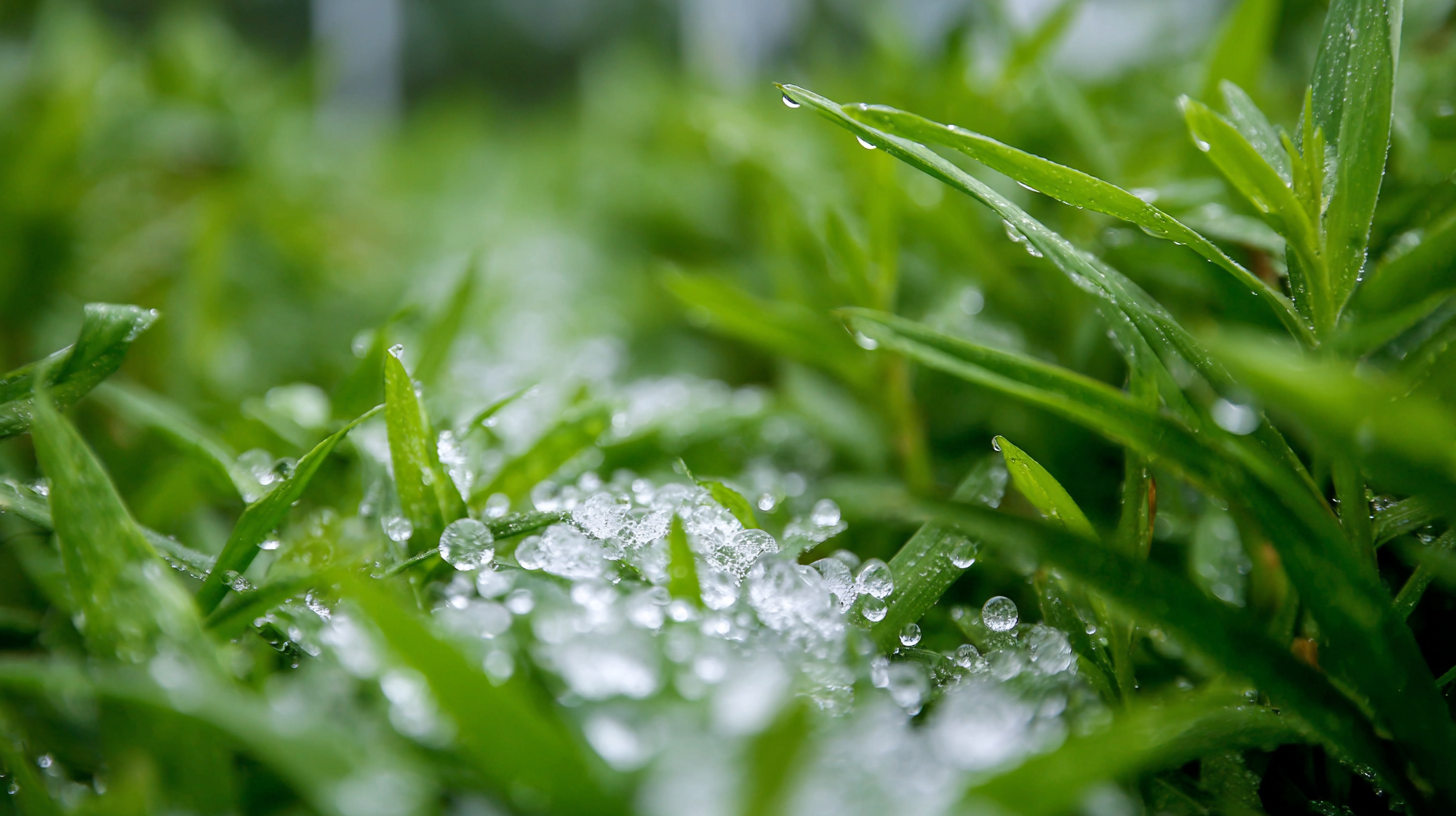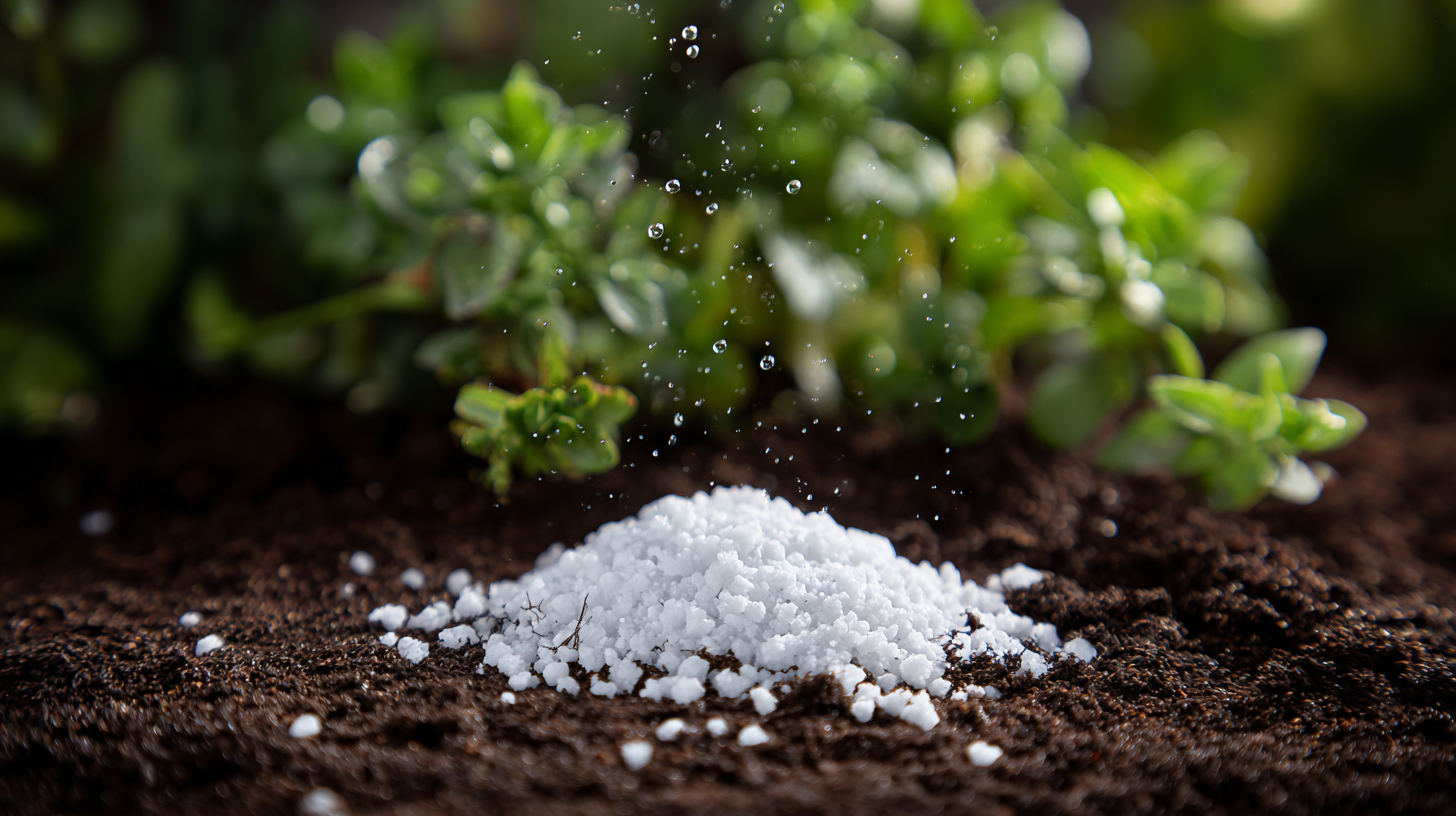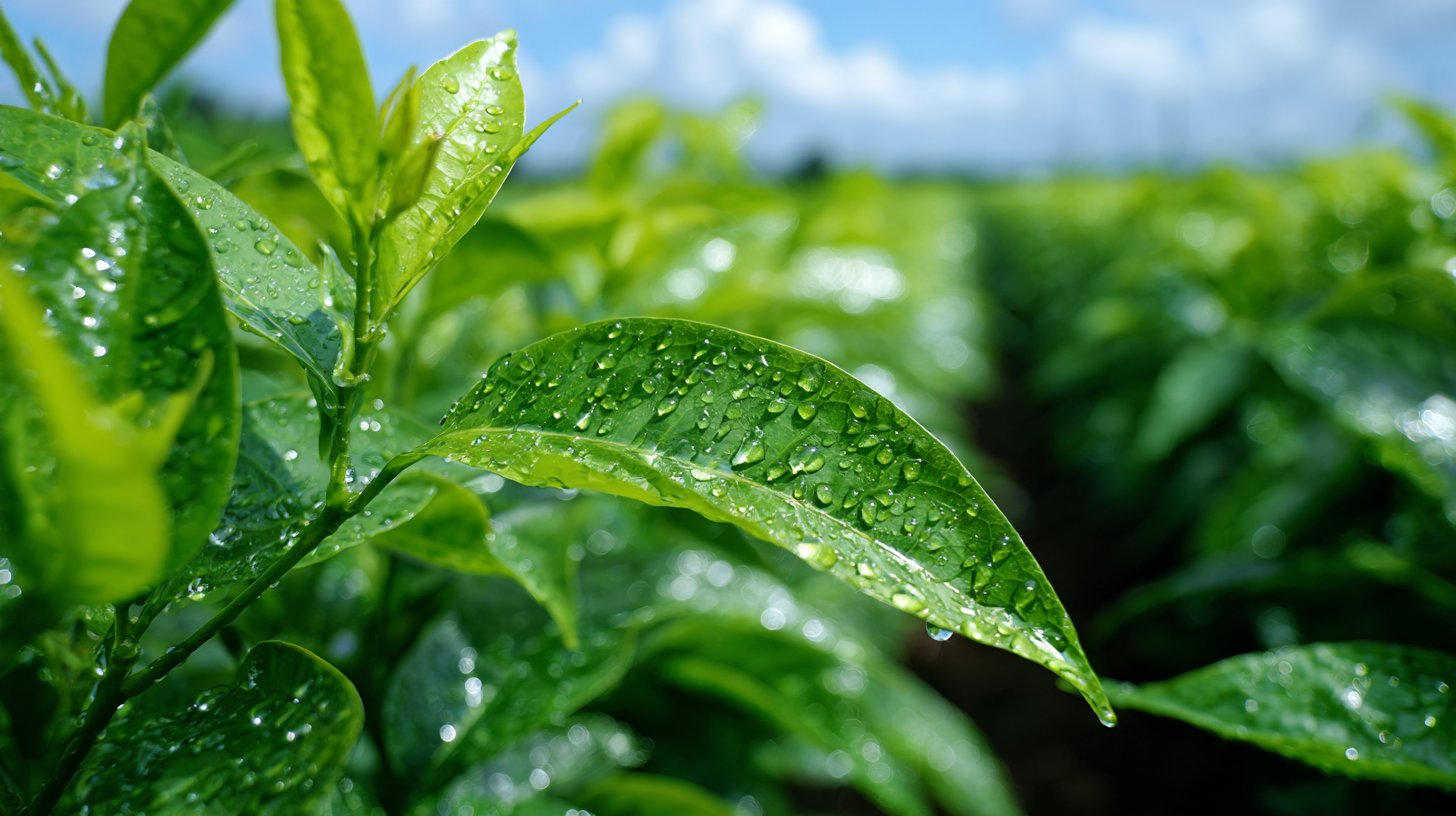 In the realm of sustainable gardening, the importance of choosing the right fertilizers cannot be overstated. One particularly advantageous option is Water Soluble Organic Nitrogen Fertilizer, which offers a multitude of benefits for gardeners who prioritize eco-friendly practices. This type of fertilizer is designed to provide plants with an immediate source of nitrogen, a crucial nutrient for healthy growth, while also being derived from natural sources that minimize environmental impact.
In the realm of sustainable gardening, the importance of choosing the right fertilizers cannot be overstated. One particularly advantageous option is Water Soluble Organic Nitrogen Fertilizer, which offers a multitude of benefits for gardeners who prioritize eco-friendly practices. This type of fertilizer is designed to provide plants with an immediate source of nitrogen, a crucial nutrient for healthy growth, while also being derived from natural sources that minimize environmental impact.
With the increasing awareness of the potential harm caused by synthetic fertilizers, many gardeners are shifting towards organic alternatives that not only support plant health but also enhance soil quality and biodiversity.
In this exploration of Water Soluble Organic Nitrogen Fertilizer, we will delve into its unique benefits, how it promotes sustainable gardening habits, and the practical applications that can lead to a thriving garden ecosystem.
Water soluble organic nitrogen fertilizers play a crucial role in sustainable gardening by providing plants with essential nutrients in a readily available form. Unlike traditional fertilizers, these organic alternatives are derived from natural sources, which not only reduces the risk of chemical runoff but also enhances soil health. According to a study published by the Organic Trade Association, the use of organic fertilizers can increase soil organic matter by up to 22%, improving soil structure and water retention. This is particularly beneficial for gardeners aiming to create a healthy ecosystem within their gardens.
 Moreover, water soluble organic nitrogen fertilizers facilitate efficient nutrient uptake by plants, leading to vigorous growth and increased yield. The Center for Sustainable Agriculture indicates that utilizing these fertilizers can decrease nitrogen leaching by as much as 30%, making them an environmentally friendly option. This method allows gardeners to produce lush, productive gardens while minimizing the adverse effects on local water systems. Additionally, studies have shown that organic gardening practices can enhance biodiversity, contributing to a more resilient environment overall.
Moreover, water soluble organic nitrogen fertilizers facilitate efficient nutrient uptake by plants, leading to vigorous growth and increased yield. The Center for Sustainable Agriculture indicates that utilizing these fertilizers can decrease nitrogen leaching by as much as 30%, making them an environmentally friendly option. This method allows gardeners to produce lush, productive gardens while minimizing the adverse effects on local water systems. Additionally, studies have shown that organic gardening practices can enhance biodiversity, contributing to a more resilient environment overall.
Water soluble organic nitrogen fertilizers play a crucial role in promoting plant health and enhancing sustainable gardening practices. These fertilizers provide a readily available nitrogen source that is vital for plant growth, nutrient uptake, and overall vigor. According to a report by the International Fertilizer Industry Association, nitrogen is one of the three primary nutrients required for healthy plant development, significantly influencing biomass accumulation and fruit yield. In fact, crops treated with water soluble organic nitrogen fertilizers have shown an increase in yield by up to 20% compared to those using traditional fertilizers.
Moreover, water soluble organic nitrogen fertilizers contribute to improved soil health by fostering a diverse microbial community. A study published in the Journal of Sustainable Agriculture found that organic fertilizers enhance soil structure, increase organic matter content, and promote microbial activity, which is essential for nutrient cycling. With a well-balanced application of these fertilizers, gardeners can expect not only healthier plants but also a more resilient ecosystem that supports sustainable farming practices. As awareness of environmental sustainability grows, the adoption of water soluble organic nitrogen fertilizers can significantly mitigate the negative impacts of chemical fertilizers while promoting a thriving garden.
Water soluble organic nitrogen fertilizers play a crucial role in sustainable gardening by providing essential nutrients that encourage healthy plant growth while minimizing environmental impact. According to a report by the Organic Trade Association, the global organic fertilizer market is projected to reach $12.73 billion by 2026, indicating a growing shift towards sustainable practices. To maximize the effectiveness of water soluble organic nitrogen fertilizers, proper application techniques are essential.
When applying these fertilizers, it's important to consider the timing and method. Researchers from the University of California recommend applying water soluble fertilizers during the early growth stages of plants to enhance nutrient absorption. A study published in the Journal of Agriculture and Food Chemistry found that applying the fertilizer either as a foliar spray or through drip irrigation can increase nitrogen uptake by up to 30% compared to traditional methods. This precision not only improves plant health but also reduces nutrient runoff, protecting local waterways and ecosystems.
To further optimize results, gardeners should follow the recommended rates provided by the manufacturer, typically ranging from 2-4 ounces per gallon of water. Regular soil testing can also help determine specific nutrient needs, allowing for adjustments that promote maximum plant vigor while supporting sustainable agricultural practices. By combining strategic application with ongoing soil health management, water soluble organic nitrogen fertilizers can significantly benefit both the garden and the environment.
| Benefit | Description | Application Method | Frequency of Use |
|---|---|---|---|
| Improved Plant Growth | Water soluble organic nitrogen fertilizers provide immediate nitrogen availability, promoting rapid plant growth. | Dilute according to package instructions and apply directly to the soil or as a foliar spray. | Every 2-4 weeks during the growing season. |
| Enhanced Nutrient Uptake | Soluble forms of nitrogen are easily absorbed by plants, improving overall nutrient efficiency. | Mix with water and nourish plants during watering sessions. | Weekly during peak growth periods. |
| Soil Microbial Activity | Organic nitrogen fertilizers can enhance beneficial microbial activities in the soil. | Apply as per soil test recommendations to foster healthy soil ecology. | Based on soil analysis results. |
| Sustainable Gardening | These fertilizers support sustainable practices by reducing the risk of runoff and environmental pollution. | Use in combination with other organic amendments for best results. | As needed based on crop requirements. |
| Customized Nutrient Delivery | Allows for tailored fertilization based on specific plant needs and growth stages. | Assess plant health and apply targeted doses as needed. | Monitor plants and adjust accordingly. |
When it comes to sustainable gardening, selecting the right water soluble organic nitrogen fertilizer is crucial for fostering healthy plant growth. There are various options available, each with distinct characteristics that can impact your plants’ development. Key factors to consider include the source of nitrogen, the ratio of nitrogen to other nutrients, and the specific needs of your plants. For instance, fish emulsion and seaweed extracts are excellent choices for their organic integrity and additional micronutrients, promoting robust growth without harming the environment.
**Tips:** Before choosing a fertilizer, consider conducting a soil test to understand your garden's nutrient needs. This can help you select a product with the right nitrogen content. Look for fertilizers labeled as "slow-release" if you want a more gradual nutrient supply, which can lead to better root development and reduced leaching. Additionally, always follow the recommended application rates to avoid over-fertilizing, which can harm your plants and lead to nutrient runoff.
**Tips:** Opt for fertilizers that are OMRI (Organic Materials Review Institute) listed for peace of mind. These products have been verified to meet organic standards. Also, consider timing your fertilizer application; using it during the growing season can maximize its benefits, ensuring that your plants receive the nutrients they need exactly when they need them.
Integrating water soluble organic nitrogen fertilizers into your gardening routine can greatly enhance plant growth while promoting sustainability. Begin by assessing your soil’s nutrient needs through testing. This will help you identify the right timing and amount of fertilizer to apply. Water soluble options are excellent for quick nutrient delivery, so consider using them during the active growing season when plants require more nitrogen for robust leaf and shoot development.
When applying these fertilizers, follow the recommended dilution rates and frequency. A good practice is to incorporate them into your regular watering schedule. This allows for even distribution and minimizes the risk of nutrient runoff. Additionally, combining water soluble organic nitrogen fertilizers with compost tea or other organic amendments can create a synergistic effect, improving overall soil health and enhancing nutrient absorption by plants. Engaging in this routine not only bolsters your plants but also supports an eco-friendly approach to gardening.

